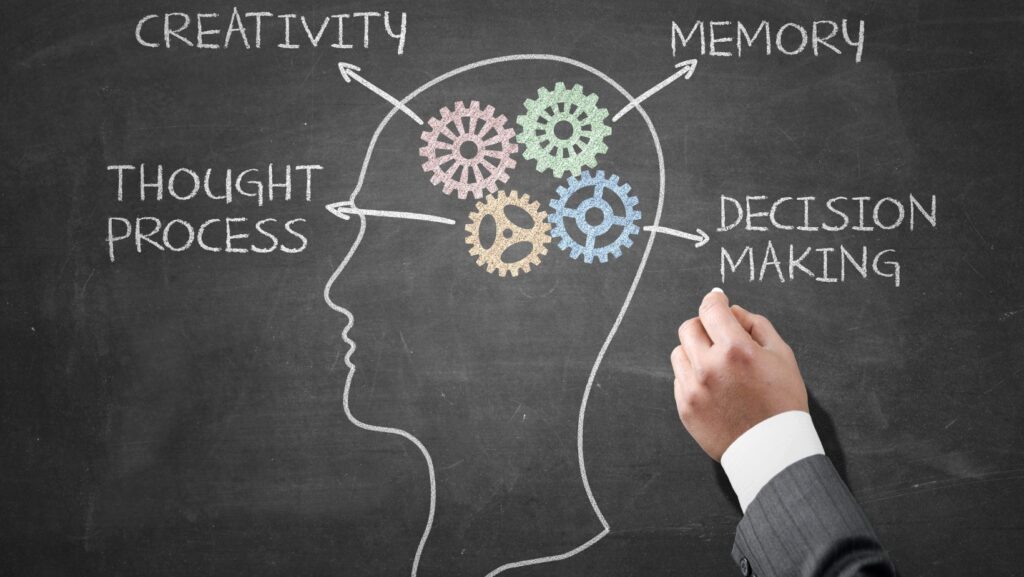
Multi-Function Behaviors do Not Really Exist.
Have you ever wondered if multitasking is really possible? We live in a fast-paced world where we are constantly juggling multiple tasks and responsibilities. It seems like being able to perform multiple functions simultaneously would be a valuable skill. However, in this article, I’ll explore the concept of multi-function behaviors and argue that they don’t actually exist.
In today’s society, we often pride ourselves on our ability to multitask. We believe that by doing several things at once, we are being more efficient and productive. But is this really the case? As I delve deeper into this topic, I’ll discuss the limitations of our cognitive abilities and how our brains are not designed to handle multiple tasks simultaneously.
The Myth of Multitasking Efficiency
Multitasking is often touted as a skill that enables us to accomplish more in less time. However, the truth is that multitasking is more of a myth than a reality. Our brains are simply not wired to effectively handle multiple tasks simultaneously.
Research has shown that when we attempt to multitask, what we are actually doing is rapidly switching our attention between different activities. Contrary to popular belief, this rapid switching comes with significant cognitive costs.
One of the main drawbacks of multitasking is its detrimental effect on our ability to concentrate. When we divide our attention between multiple tasks, we end up being less effective in completing each individual task. Instead of giving our full focus and attention to one activity, we are constantly dividing our mental resources, resulting in reduced efficiency and increased mistakes.
Furthermore, multitasking can have negative long-term effects on our cognitive abilities. Studies have shown that frequent multitaskers have difficulties in maintaining focus, problem-solving, and decision-making. These individuals tend to have a decreased ability to filter out distractions and focus deeply on a single task.
It is important to recognize that multitasking is not an efficient use of our time. Rather than trying to juggle multiple tasks at once, we should prioritize our tasks and give our full attention to one thing at a time. By focusing on one task, we can immerse ourselves in it and give it the attention it deserves, leading to better quality work and improved productivity.
The idea of multitasking efficiency is a myth. Our brains are not designed to handle multiple tasks simultaneously, and attempting to do so only impairs our ability to concentrate and complete tasks effectively. To boost our performance and productivity, it is crucial that we prioritize tasks, manage our time effectively, and give our undivided attention to one task at a time.

Understanding Our Cognitive Limitations
As an expert in cognitive psychology, I have extensively studied our brain’s capacity for multitasking. I’ll let you in on a little secret – multi-function behaviors simply do not exist. Our brains are not wired to handle multiple tasks simultaneously, despite how much we might want to believe that we are capable of being a master of multitasking.
When we attempt to multitask, what we are actually doing is rapidly switching our attention between different activities. Our brains are not equipped to seamlessly shift focus from one task to another without incurring cognitive costs. This constant switching not only impairs our ability to concentrate, but it also disrupts the efficient completion of tasks.
Research has consistently shown that multitasking leads to reduced efficiency and an increased likelihood of errors. In one study conducted at Stanford University, participants who identified themselves as frequent multitaskers were found to not only perform worse on cognitive tasks but also have difficulty in maintaining focus, problem-solving, and decision-making.
Moreover, it is important to note that our brains have limited cognitive resources. When we split our attention between multiple tasks, we are essentially diluting those resources, resulting in diminished mental performance. It’s like trying to spread butter over too much bread – the end result is a thin and unsatisfying layer of butter on each slice.
So, what can we do to overcome our cognitive limitations? Well, the solution lies in prioritizing tasks, managing our time effectively, and giving our undivided attention to one task at a time. By focusing on one task and completing it before moving on to the next, we can optimize our brain’s ability to concentrate and perform at its best.
The idea of multitasking as a desirable skill is simply a myth. Our brains are not designed to effectively handle multiple tasks simultaneously. Understanding our cognitive limitations and adopting strategies to prioritize tasks and focus on one task at a time is key to improving our performance and productivity.
Conclusion
After exploring the myth of multitasking efficiency, it is clear that our brains are not designed to handle multiple tasks simultaneously. Rather than truly multitasking, we are actually rapidly switching our attention between different activities, which comes with significant cognitive costs. This constant switching impairs our ability to concentrate and complete tasks effectively, leading to reduced efficiency and increased mistakes.












